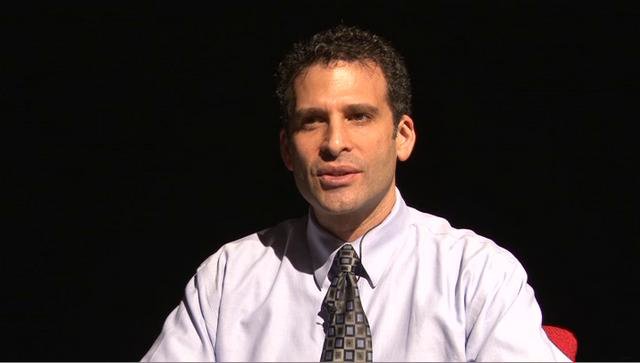During spring break, I visited several colleges on the East Coast, each one trying to emphasize what made their institution superior to others. Through multiple info sessions and tours in three different cities, there was a common theme to the questions asked – how competitive is the academic environment? Is it cutthroat? Is there grade inflation?
All of the tour guides and admissions directors tried to convince the prospective students that their school was not competitive, and it was a collaborative environment where everyone worked together well. Why were they so hesitant to admit to any amount of competition? Is competition a bad thing? When does it turn from healthy motivation to anxiety attacks?While many don’t like to admit it, Latin is a competitive academic environment. And with academic competition often comes stress with every test, essay, quiz, or even small homework assignment. For some reason, the norm at Latin is to strive to be a perfectionist.
At last week’s assembly, many of us were forced to confront this somewhat unsettling reality as Dr. Ken Ginsburg, a pediatrician for teenagers, explained how mentally unhealthy it is to be a perfectionist. Standing in front of an eager student body and faculty, Dr. Ginsburg said, “After receiving a standing ovation, a non-perfectionist will enjoy the spectacular moment and pride himself on his wonderful performance, while a perfectionist will notice the one person sitting down.” At Latin, it often feels that in attempting to be perfect, we focus too much on the people who may not think we are that perfect – i.e. the person sitting down – instead of rejoicing in our accomplishments. Now, that is not to say you should not take constructive criticism, or, on the other end of the spectrum, rejoice in everything you do, but when you know you are excelling, accept it, don’t try to prove that you are not.
Dr. Ginsburg went on to explain the impetus behind this drive to be perfect – external pressure and stress – and the difference between a paper tiger and a real tiger (in other words, something that can’t eat your face off and something that can). Many students at Latin view tests and quizzes as a real tiger, causing irrational trains of thought that can interfere with their performance and overall learning experience. Ironically, this pursuit of perfection can cause a decline in achievement; if you perceive each assessment as a life-threatening event, then your performance is likely to suffer due to the distraction.
Following Dr. Ginsburg’s empowering speech, many left rejuvenated and excited to start anew, to stop trying to be perfect, and not care what others think of their accomplishments – until about fifteen minutes later, when most realized that it was not as easy as it sounded. Junior Aidan Sarazen believed, “It is a good thought in theory, but it is hard to turn off the switch and instantaneously stop competing with your classmates.” Going through the rest of that school day, many found themselves continuing to worry about others’ perceptions of them, and going into a test so stressed they couldn’t think. This begs the question, is it plausible to ask 500 kids with similar short-term goals to not compete or compare themselves with their peers?
No.Competition is natural; it’s subconscious. What is not subconscious or healthy, for that matter, is the attempt to be perfect. And while it is certainly a lot easier said than done, it is something that we as a school (and as a society) need to work on. Chasing perfection is not necessarily detrimental – it is motivation to achieve the utmost success – but it can limit one from expanding their horizon and being open to new opportunities. Those who strive for perfection often refrain from taking risks or trying anything out of their comfort zone, as they fear failure. With regard to the perfectionists of the world, Samuel Beckett, an Irish playwright, once said, “Ever tried. Ever failed. No matter. Try again. Fail again. Fail better.” It is those who fail the most graciously that are the most successful, because with every failure comes a learning experience that can create and enhance future opportunities. In the pursuit of absolute perfection, the journey – what you learn and who you meet along the way – is lost and the focus on that one person sitting down limits the ability to appreciate the hundreds of people standing up in applause.
So, next time, when you are visiting colleges and trying to identify an academic environment that would be the best fit, ask the question, “Do students fail well here? Are they resilient?” If the answer is yes, then that campus is most likely filled with many people who are going to go far in life.]]>










































